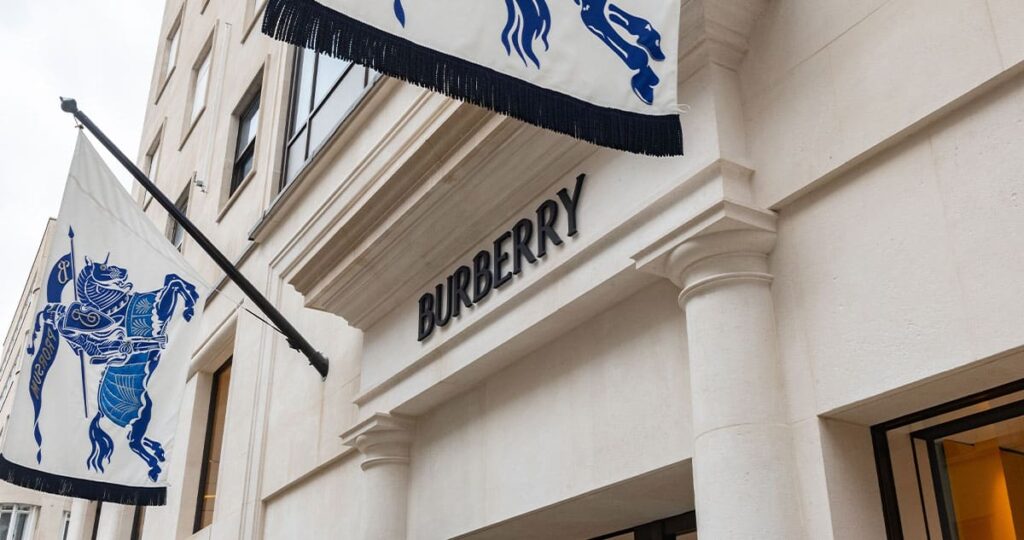On Wednesday, the Burberry model announced will probably be reducing as much as 1,700 jobs, about 18% of its workforce, by 2027 to cut back working prices by round $133 million. This transfer is a part of new CEO Joshua Schulman’s “Burberry Forward” comeback strategy.
Name it a comeback
The transfer comes amid a reported working lack of around $4 million year over year. The model plans to return to what it does greatest: trench coats, scarves and British craftsmanship, whereas decreasing costs on sure merchandise.
In keeping with Reuters, the job cuts will largely influence workplace employees at its London headquarters. Burberry’s trench coat manufacturing facility in Castleford, England, may even reduce its total night time shift, which Schulman mentioned had induced overproduction, hurting the corporate’s backside line.
Between 2017 and 2022, the corporate tried to slip into higher-end classes, manufacturing upscale leather-based equipment and purse bling, however most of it flopped. Whereas refocusing on its traditional merchandise, it’ll additionally cut back costs on the objects it doesn’t really feel it has authority in, akin to jewellery and residential items.
Schulman’s technique highlights timeless British luxurious, its authority classes, retailer productiveness and a high-performance tradition. The announcement obtained a constructive response, with shares jumping 18% on Wednesday.
A pattern in backtracking
Burberry is considered one of many manufacturers on a path to rediscovering itself. Corporations like Starbucks, Chipotle and HBO Max—with the 2 former additionally taking up new CEOs in 2024—are making drastic adjustments and realigning their identities.
Starbucks is taking out stickers in favor of hand-writing buyer names on cups as a part of its “Back to Starbucks” plan. It’s additionally cracked down on employee dress code, simplified its menu (one other reverse-diversifying transfer) and is making Starbucks stores cozy again. CEO Brian Niccol mentioned in a press release, “There’s a shared sense that we now have drifted from our core,” and he promised to make a return to the model’s “enduring id.”
At Chipotle, clients can anticipate a return to these generous portions and lower prices. CEO Scott Boatwright is championing a “guest obsessed” mindset to enhance hospitality. It’s additionally becoming a member of the reverse-diversifying motion, shutting down its spinoff enterprise Farmesa Fresh.
The streaming service previously referred to as “Max” is changing its identify as soon as once more. The shift from “HBO Max” to simply “Max” aimed to ship the “broadest array of content material out there,” CEO David Zaslav defined to CNBC in 2023. However the firm is realizing the extreme dramas it’s at all times been identified for, akin to White Lotus, are what’s drawing viewers, so it’s tacking the “HBO” again onto its streaming service’s identify.
Placing Burberry’s eggs again in a single basket
These main corporations aren’t reinventing the wheel or specializing in contemporary concepts and new applied sciences. As an alternative, they’re remembering what made them profitable within the first place and attempting to reignite that spark.
In Schulman’s statement on Wednesday, he mentioned, “The continued resilience of our outerwear and scarf classes reaffirms my perception that we now have essentially the most alternative the place we now have essentially the most authenticity.… I’m extra optimistic than ever that Burberry’s greatest days are forward and that we are going to ship sustainable worthwhile development over time.”
Reverse-diversifying its product choices will permit Burberry to deal with the Britishness that made it a once-dominating power in mid-tier luxurious and emphasize “executional self-discipline” to ship well-crafted merchandise in its core classes.
It’s betting on its iconic Burberry Verify and high-quality outerwear to revitalize income.
Photograph by John Wreford/Shutterstock
